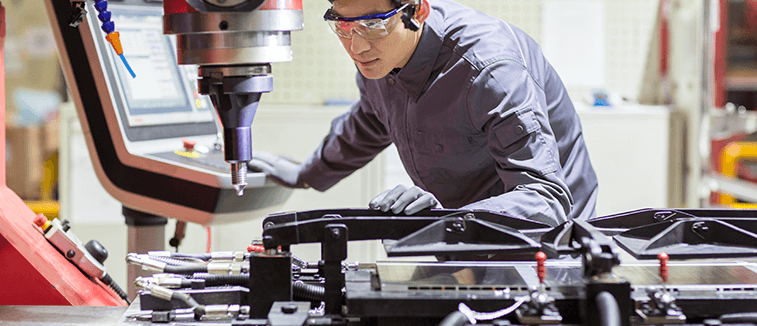Industrial Engineer
Create efficient systems to manufacture or improve a product.
Job opportunities
-
Jobs in Jobstreet right nowJob growth
-
In the last yearSalary
-
Typical monthly salaryJob satisfaction
-
Job opportunities
-
Jobs in Jobstreet right nowSalary
-
Typical monthly salaryJob growth
-
In the last yearJob satisfaction
-
On this page
- What's it like to be an Industrial Engineer?
- How to become an Industrial Engineer
- Latest Industrial Engineer jobs
- Top skills and experience for Industrial Engineers
What's it like to be an Industrial Engineer?
Industrial Engineers create efficient systems that blend together manpower, machines, and information to manufacture or improve a product. They usually work in teams in a variety of industries such as manufacturing, technology, and health care. Depending on their tasks, Industrial Engineers work either in offices or on the sites that they are trying to upgrade or revamp.
Tasks and duties
- Designing and implementing production processes that improve efficiency, lower costs, and reduce waste.
- Evaluating current processes and spotting areas for improvement.
- Developing design and production standards in cooperation with management and user personnel.
- Preparing lists of materials, purchase orders, cost analyses, and estimated production costs.
- Training staff for new processes and providing instructions and manuals.
- Evaluating tasks and responsibilities of current employees to update procedures and boost productivity.
How to become an Industrial Engineer
Industrial Engineers need knowledge of engineering and design software, computer technology, and systems operations. They also need good interpersonal communication skills since they work with many co-workers and outside teams. These skills can be gained through formal education.
- 1.Complete a course in industrial engineering at a certified university or college such as a Bachelor of Science in Industrial Engineering. This is usually a five-year degree program. During the fourth year of college, students are typically required to complete an internship or On the Job Training (OJT) in a company or organization that specialize and practice industrial engineering procedures.
- 2.Get certified. Certifications can make you more credible and can be advantageous in securing a job, but they should not be considered board examinations and are not required. Certification exams are conducted by the Industrial Engineering Certification Board (IECB) and supervised by the Philippine Institute of Industrial Engineers (PIIE). The Certified Industrial Engineering (CIE) exam is geared towards fresh graduates. After passing the exam, you receive a CIE Certification and a designation for associate practice. If you have already passed the CIE examination, you can take the Professional Industrial Engineering (PIE) exam. You must also hold a masters degree in a related field and have at least seven cumulative years of work experience. Those who receive certification also receive a designation for professional practice.
Compare your salary
Find out how your salary compares with the average salary for Industrial Engineers.Latest Industrial Engineer jobs on Jobstreet
Be one of the first to discover these recently listed jobs, or browse all Industrial Engineer jobs on Jobstreet right now.Lean Engineer / Industrial Engineer
First Philec, Inc
Tanauan City, Batangas
Full Time
Engineering8d ago
Product Change Specialist
The Hershey Company ROHQ
Makati City, Metro Manila
Full Time
Engineering2d ago
Did you find this helpful?
Skills and experience employers are looking for
Having the right skills and experience can make you an in-demand applicant. Industrial Engineer employers on Jobstreet are looking for job seekers with expertise in the following areas. Industrial Engineering
Time and Motion Studies
Process Improvement
Production Process
Lean Manufacturing
Analytical Thinking
Data Analysis
Six Sigma
Cost Reduction
Job Evaluation
Quality Control
Manufacturing Processes
Financial Audit
Communication Skills
Problem Solving
Production Planning
Thoroughness
Critical Thinking
Microsoft Office
Supply Chain
Source: Jobstreet job ads and Jobstreet Profile data
Did you find this helpful?